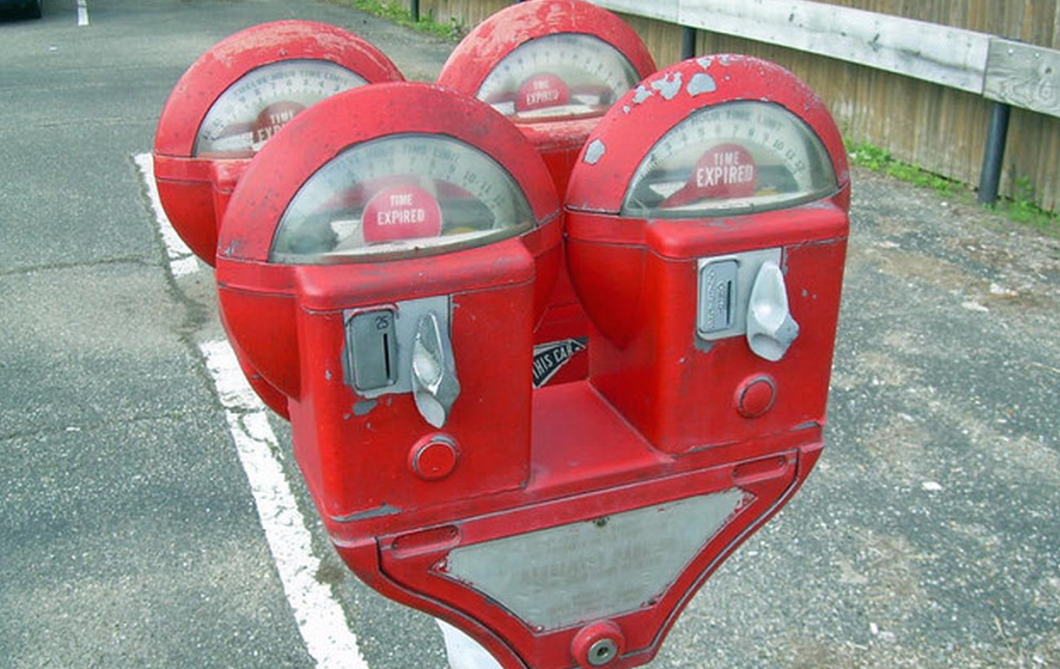Court Rules Parking Meter “Robin Hoods” Are Protected By First Amendment
A city in New Hampshire says that its parking enforcement officers have been harassed and kept from doing their duties by a group of “Robin Hoods” who follow the officers around, not only putting coins in expired meters before cars can be ticketed, but videotaping and speaking rudely to them. Yesterday, the state’s highest court ruled that this behavior is protected by the First Amendment, but will give the city one more chance to argue for some sort of injunction to put some distance between the Robin Hoods and the officers.
The city of Keene, NH, had tried to bring a civil case of tortious interference against the Robin Hoods, claiming the group’s actions were preventing the enforcement officers from doing the work they were contracted to do. The city said the lawsuit wasn’t intended to stop the anti-meter protesters from filling up expired meters or from videotaping officers, but to hold the Robin Hoods responsible for the more allegedly obnoxious aspects of their protest.
A trial court had dismissed the city’s complaint, saying the defendants’ actions were permitted by the First Amendment as the protest was taking place in a proper public forum and involved a genuine matter of public concern.
But in appealing that dismissal, the city contended that certain behaviors — “following closely, chasing, running after, approaching quickly from behind, lurking outside bathrooms, yelling loudly, and filming from close proximity” — are not protected by the First Amendment, and that this conduct made the defendants liable for the enforcement officers being unable to do their job.
The defendants countered that “Even those activities that did not involve speech [are] expressive conduct entitled to First Amendment protection,” and thus shielded from tort liability.
In its ruling [PDF], the New Hampshire Supremes agreed, explaining that so long as the non-verbal acts are non-violent, they are considered protected speech, even if they have a negative impact on business.
“Although certain aspects of the respondents’ speech — such as referring to the PEOs in a derogatory fashion — may ‘fall short of refined social or political commentary, the issues they highlight… are matters of public import,'” explains the ruling. “Indeed, the Supreme Court has concluded that the content of protected speech ‘cannot be restricted simply because it is upsetting or arouses contempt.'”
The court held that it’s important that non-violent expression is protected because the mere threat of tort liability for engaging in free expression may undermine “the free and robust debate of public issues,” and “pose the risk of a reaction of self-censorship on matters of public import.”
That said, the court also ruled that the trial court wrongly dismissed the city’s request to consider an injunction against the Robin Hoods.
In appealing this issue, the city had argued that the lower court failed to balance considerations of public and workplace safety against the Robin Hoods’ First Amendment rights. Even if the court felt the tortious interference claim was unfounded, it should have considered providing some sort of buffer between the officers and the defendants, contended the city.
The Robin Hoods claimed that the city did not attempt to show that the defendants were violating any sort of ordinance or criminal law, and so the trial court was right to disregard the injunction request. The city responded by pointing out that an ordinance against this sort of protest would have a much more chilling effect on free speech than a simple injunction.
In the end, the state supreme court ruled that the trial court had erred when it “denied injunctive relief without considering all the factual circumstances of the case.”
“In light of the City’s allegations that the challenged conduct threatens the safety of the PEOs, pedestrians, and the motoring public,” reads the ruling, “we hold that the trial court erred when it failed to consider the particular factual circumstances of the case and whether an injunction should issue based upon the governmental and policy interests asserted by the City.”
That doesn’t mean that the trial court has to issue an injunction, just that it now has to consider the arguments for and against the injunction separately from the issue of the tortious interference lawsuit.
Here’s a 2014 story about the Free Keene meter-feeders from The Colbert Report:
Want more consumer news? Visit our parent organization, Consumer Reports, for the latest on scams, recalls, and other consumer issues.


